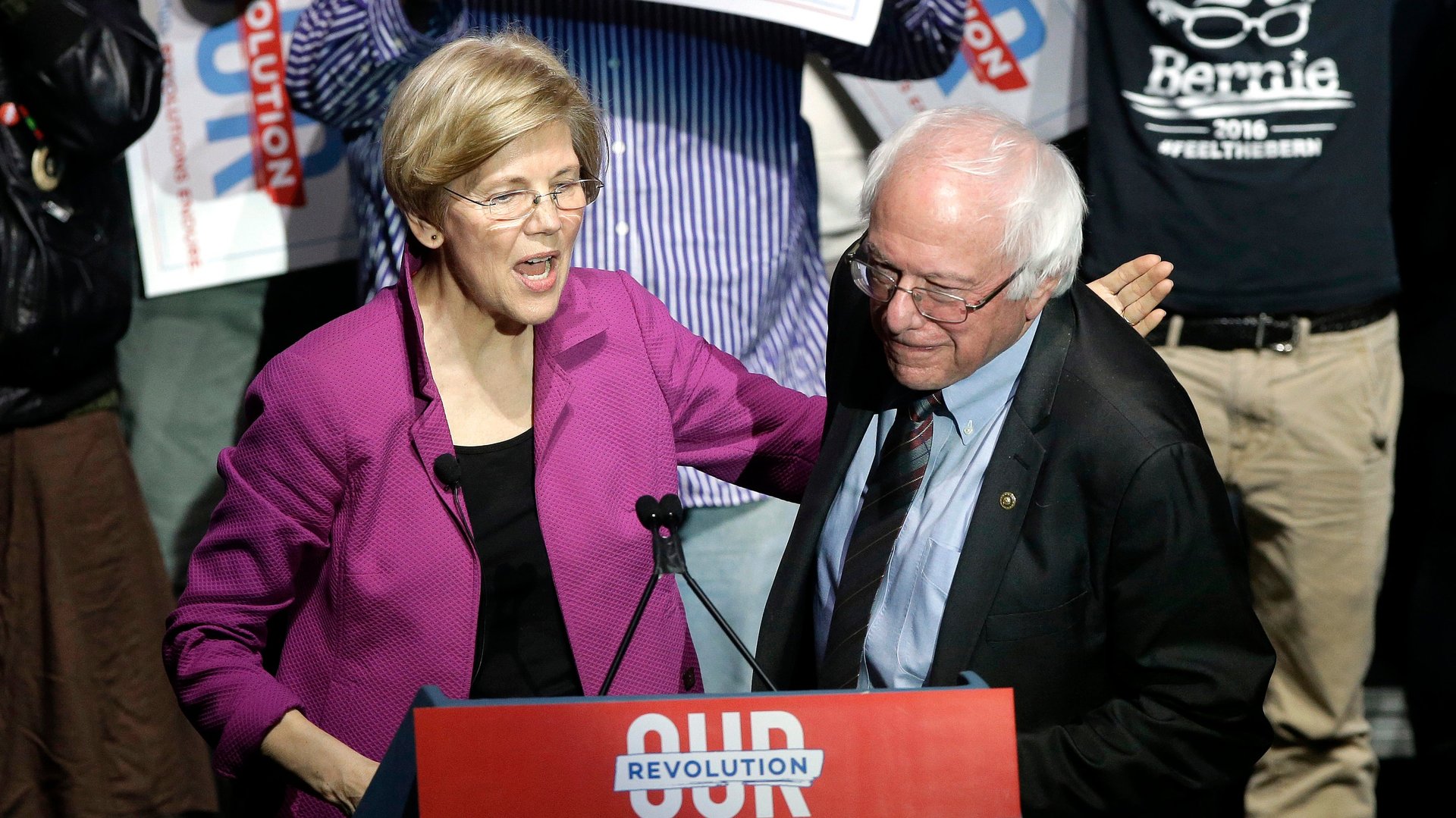Bernie Sanders has an Elizabeth Warren problem at tonight’s debate
Senator Bernie Sanders has a strategy for tearing down the front-runner in the Democratic debate tonight, but there’s just one problem: Former vice president Joe Biden won’t be on the stage until tomorrow.


Senator Bernie Sanders has a strategy for tearing down the front-runner in the Democratic debate tonight, but there’s just one problem: Former vice president Joe Biden won’t be on the stage until tomorrow.
One of the key fault lines in the race to challenge US president Donald Trump next fall is in the embrace of more straightforward public benefits. The biggest example is Medicare for All, a single-payer health care scheme, which could replace the current patchwork of public and private insurance.
In his current campaign, Sanders is pushing even harder to maker his vision of health care—and the government’s role in the economy—central to the party’s platform, no matter who the nominee is. In recent days, he’s said that Biden’s criticisms of Medicare for All sound “like Donald Trump,” truly fighting words in this primary. His campaign also sent an e-mail broadside against California Senator Kamala Harris’ health care plan, saying it would privatize Medicare.
But Harris isn’t going to be on stage with Sanders tonight, either. Instead, Sanders will be joined by Senator Elizabeth Warren and South Bend Mayor Pete Buttigieg as the three front-runners, along with seven other candidates polling in the single digits.
Sanders and Warren are among the more ideologically copacetic candidates on stage; though Warren is not a socialist like Sanders, her vision of a muscular regulatory state restraining free markets is closest to his. Sanders has declined to criticize Warren thus far in the campaign, but that may leave him without much of an opportunity to illustrate how he stands out among the large cast of candidates.
Sanders’ campaign isn’t worried. Senior advisor Jeff Weaver told NPR that debate lineups don’t matter; what’s important is sharing Sanders’ message with millions of viewers.
But a recent national poll of Democratic voters by Quinnipiac University found that Sanders is in fourth place, behind Biden, Warren and Harris. Drawing a contrast between himself and Warren and Harris is arguably even more important right now. Early in the 2015 primary debates, Sanders was reluctant to attack Clinton’s vulnerabilities, such as an FBI investigation into her private e-mail server.
That leaves Sanders’ campaign with a strategic dilemma: Does their candidate need to show left-leaning voters that he is a better champion than Warren, or should he continue chipping away at moderate policy positions embraced by other candidates? After all, the reason Medicare for All is even on the menu today is because Sanders championed it during his 2015 presidential primary run.
Still, ideology is hardly the only driver of voter behavior. Public opinion surveys asking primary voters about their second choices have turned up an interesting finding: Most Sanders voters say their second choice is Biden, and vice-versa, despite their policy disagreements. Meanwhile, Harris and Warren voters rank the two candidates as top alternates.
That suggests that age and gender are playing a bigger role in picking the future nominee than sweeping policy visions. If so, Sanders’ apparent plan to keep picking on Biden may make sense even as other progressive-leaning candidates leapfrog him in opinion surveys.